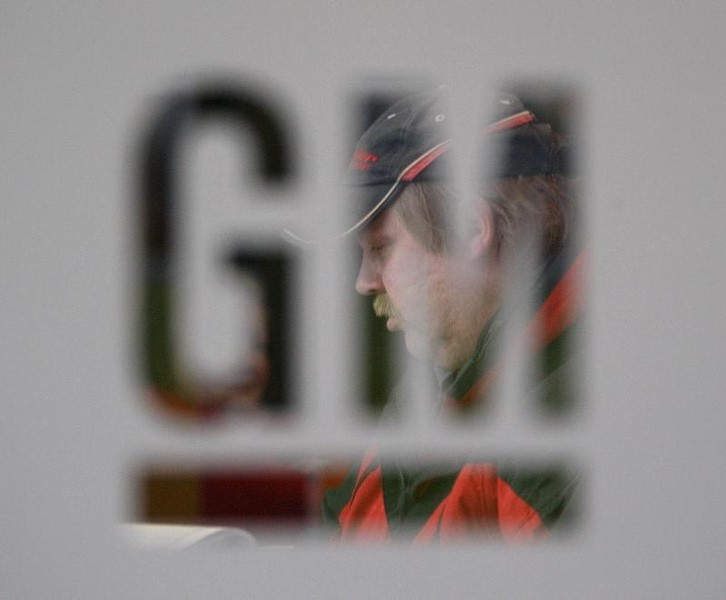Investing.com - Here are three things that flew under the radar this week.
1. GM Strike Sends Out Economic Shockwaves
The strike that involved about 50,000 workers at General Motors (NYSE:GM) ended Friday as employees and unions voted to approve the deal struck with management.
It may be surprising a strike of such size at one of the Big 3 automakers was pretty much overshadowed by other news as it continued, but U.S. auto stocks have taken a back seat to other equities ever since the government bailout.
Still, this work stoppage had an impact well beyond the GM factory lines.
On Thursday, the Commerce Department reported that durable goods orders fell 1.1% in September, much more than the 0.5% drop expected, according to economists’ forecasts compiled by Investing.com.
“Losses were concentrated in transportation equipment, fabricated metals and losses associated with the GM strike, which exacerbated weakness associated with tariffs and slower global growth,” Diane Swonk, chief economist at Grant Thornton, wrote in a note.
“I spoke to one manufacturer who told me senior management is now spending 20-25% of their time trying to figure out how to mute the costs of tariffs instead of planning for the future,” Swonk said. “The GM strike has only added to those pains.”
“The manufacturing sector is not expected to recoup all that was lost to the GM strike until into the first quarter of 2020.”
In addition, the Labor Department said that the strike will reduce October nonfarm payrolls by at least 46,000, with striking workers not receiving a paycheck being counted as unemployed for the period.
2. Will Tesla Keep Driving Profits or Will It Stall?
Not all earnings beats are created equal. Some require a deep dive to discover whether the underlying factors driving earnings are sustainable.
Tesla (NASDAQ:TSLA) generated blowout earnings. But some on Wall Street were quick to identify signs of air pockets, including a fall in revenue for the first time in seven years, potentially sending the carmaker veering off course.
Tesla reported $6.3 billion in revenue and an unexpected return to profit in the third quarter, with earnings of $1.91 per share. Analysts had expected a loss per share of 45 cents.
RBC suggested the wide earnings beat was helped by cost cuts, which can only drive growth so far, particularly at a time when revenue and margins are stuck in the mud and costs continue to soar.
“Cost control can help a quarter, but we struggle to understand how spending doesn’t have to go up to support Tesla’s growth ambitions,” said Joseph Spak, RBC Capital Markets analyst.
Tesla slashed costs by 16% in the third quarter from a year earlier, thanks to improvements in operating efficiency and a decline in manufacturing and material costs.
But while suggest a bumpy road may lie ahead for carmaker, others have lauded the report, hailing the company’s efforts to get its Giga 3 factory in China up and running.
Tesla revealed that its flagship Giga 3 was already in trial production, ahead of expectations, which is “key to penetrating the important China market over the coming years,” Wedbush said,
“(W)e move one step closer to believing this Tesla turnaround story is real with Musk delivering a robust performance with his back against the wall,” Wedbush added.
Tesla ended the week up more than 20%, cutting its losses for the year so far to under 2%.
3. IPO Insider Thinks There's Big Trouble
Renaissance Capital has built a nice business tracking the ups and downs of the IPO world.
It's been a frustrating year. A partial shutdown in the early part of the year meant there were no initial public offerings.
And then there were some of the crazier IPOs, which Renaissance would define as companies built on getting sales growth first, no matter the cost, like Uber (NYSE:UBER) and Lyft (NASDAQ:LYFT). The responsibility lies with bankers and private-equity investors who bid up valuations of startups to hardly realistic levels.
Renaissance thinks the environment is dangerous and late Thursday published an article in a projected series of six that will describe how the situation came about and what can be done to bring sanity to bear.
The current environment is reminiscent of the 1990s when IPOs were a dime a dozen and many companies went public with no profits and no real idea how they would become profitable. And then the dot.com bubble burst and the IPO market was pretty much dormant for a decade.
It's come full circle, Renaissance argues.
The average net loss of companies going public is about $36 million. When a company tries to go public, it's started to find buyer resistance. Witness the performance of shares like Lyft and Uber.
We Co., the parent of WeWork, had to shelve its IPO and be rescued by Softbank, its largest investor.
The other five installments are not yet published, but they will deal with problems created by the Sarbanes-Oxley Act, which added accounting requirement in the wake of the Enron collapse, and the 2012 JOBS Act, which has let young but large tech companies come to market with values that public investors promptly slash.
